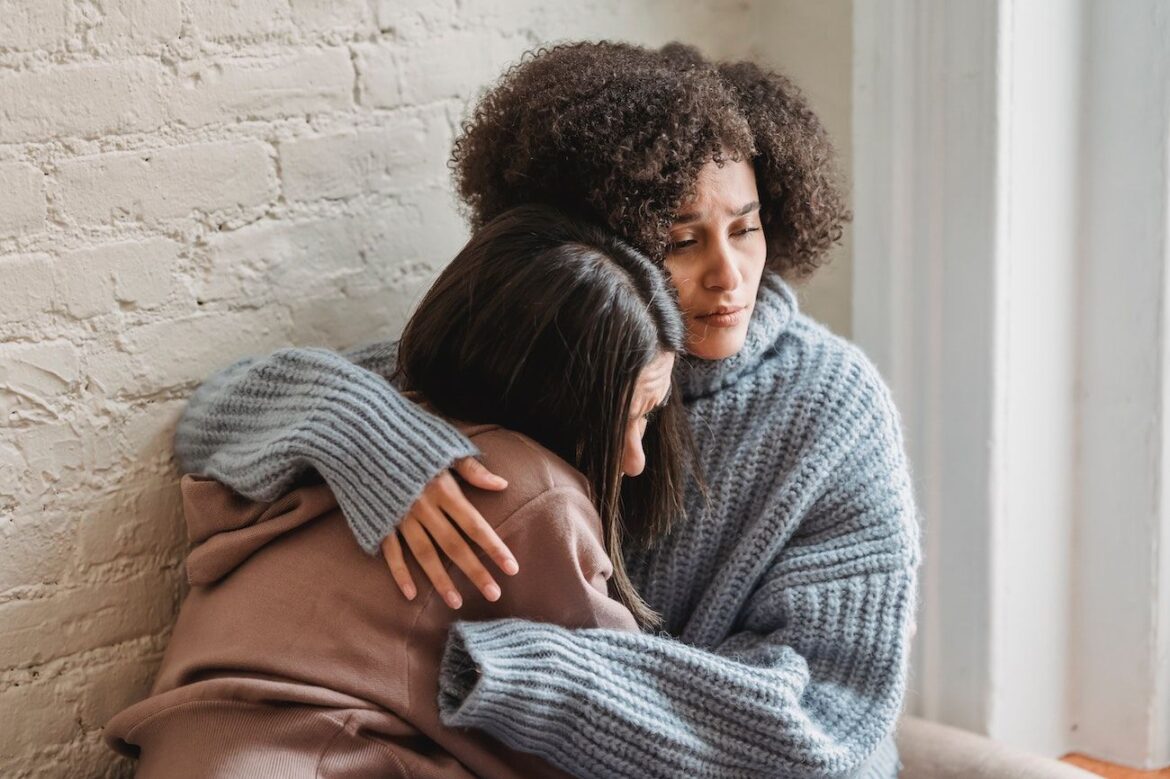The act of self-harm is a sign we need support, but how can we recognise this and ask for help?
Despite how far we’ve come in many aspects of mental health acceptance and understanding, self-harm still feels like one of those topics seeped in stigma and misunderstanding. While I’m open about a lot of my mental health concerns, discussing my history of self-harm always feels sticky.
There are many myths around self-harm, from what it entails to the notion that it’s done purely for attention. Debunking these myths can be a first step in understanding.
The more we understand how self-harm can come about, the more able we are to speak up about it. Perhaps you’re struggling with this yourself and are unsure where to turn, or maybe you’re worried about a loved one or child. Either way, keeping these topics in the dark only helps them thrive. Bringing them out into the light is the first step to moving forward.
Finding support for yourself
Talking to someone you trust about what’s going on is a helpful way to start the process of getting the help you need, however, it can often feel difficult. What if the person doesn’t understand? What if they don’t believe you? Doubts and worries may be swirling around in your mind, but there are some steps you can take to put these at ease.
Firstly, you may want to help them understand what self-harm truly is and how it can affect people by sending them some information. Counselling Directory has information about self-harm, you can also take a look at guides from Mind and Harmless. When it comes to telling them how it’s affecting you, you may feel more comfortable writing a letter or email telling them how you feel, or you may prefer to do it in person – do what feels right to you.
If you don’t want to tell someone you know, you may prefer to go straight to your doctor. Your doctor will be able to discuss with you how you’re feeling and offer different routes of support. This may include counselling, self-help techniques and/or support groups.
Talking to a professional like a counsellor or therapist can give you the space to explore why you might be self-harming and how you can reduce harmful behaviours. Discussing the process in her article Unwrapping self-harm, counsellor Fiona Austin shares that starting sessions off by establishing that you are OK with what’s happening in terms of counselling is key.
“With your confidence in the process secure, we then move on to examine why you self-harm, gently. Obviously, this is not necessarily easy, as one of the beginning challenges is not just untangling but putting emotions into words, especially as self-harm is often a feeling of overwhelm, wordlessness.”
Fiona goes on to highlight that once you’re able to establish your why, you’re halfway there as you’ve been able to externalise what’s happening.
“It’s like suddenly there’s a handle on the door. But a door you can open as far as you feel comfortable enough to.”
In the video below, integrative counsellor Mike Swift explains how counselling can help people struggling with self-harm, including what self-harm can mean for different people.
If you need support outside of sessions, or you aren’t ready/able to start counselling, it can help to speak to helplines. There are many available, including the Samaritans (116 123), Mind (0300 123 3393) and Harmless (email info@harmless.org.uk).
You may also want to look into self-help that can support you in managing self-harming thoughts and explore apps that can help (such as Calm Harm).
Supporting others
If you are worried about a loved one, you may be feeling a lot of things. Concern for their wellbeing, apprehension about bringing the topic up and possibly even a sense of helplessness. In our guide to helping someone who’s self-harming, counselling psychologist Lukas Dresslar offers a wealth of advice, including having a non-judgmental and supportive attitude and how to support them throughout recovery.
If you suspect or discover that your child is self-harming, Happiful contributor Gabrielle shares ways you can support your child, after her own personal experience. From asking them to come to you to finding alternatives to self-harming behaviour, there is a lot to take away here.
Like many mental health concerns, self-harm flourishes in isolation so, as difficult as it may feel to connect with others, it can truly make the world of difference. Being honest about my self-harm helped me get the right kind of help. And when I stopped lying about my past and my scars, it felt like a weight lifted. As I said previously, it still feels ‘sticky’ to discuss, but I’m determined to move through that feeling. Wherever you are in the process, know that you’re not alone in how you’re feeling and support is available.
If you’re interested in trying therapy, visit Counselling Directory to find a therapist to support you.

